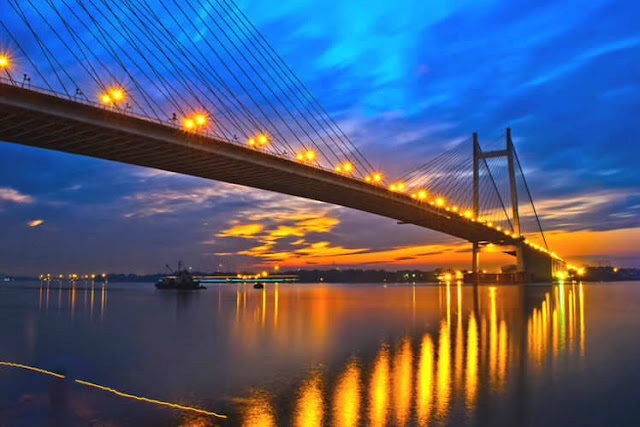What really matters
Yes, that crowded, polluted, malarial city at the frontline of climate catastrophe? That slow city, just off the tropic of Cancer, where people still rehearse for plays, read books, debate politics and go home for lunch. Where to be poor - which is not being consumed by money-culture - is still glorious. Where, despite their new-found love of shopping malls, young maidens may still fall in love with the do-nothing poet next door. Where, despite the 'free' life of apartments, people still live in large, crumbling, houses, negotiating idiosyncrasies of the joint family.
Of course, that place, of my youth, may not exist anymore the way I see it. Globalisation has reached Kolkata in the form of ugly, overpriced apartment blocks; glass buildings of IT sweatshops; separated, by malls and brands, lives of the rich and poor; chain schools and hotels by the hour; badly done replicas of global landmarks; noisy politics of religious divide. The rendition of Bengali songs at traffic signals are almost pathetic; the billboards with pretend poetry of the great leader is seriously ridiculous. Upper-class school children feel embarrassed about speaking in Bengali and college students, rather than theatre, go watch the latest Bollywood movies. As I wake up, I see Kolkata has gone Mumbai.
But it lives - I know - and show its face when you least expect it. Someone in the coffee shop unexpectedly hums the tune of a Spanish song, Nahoum's cakes still so twentieth-century and Rabindra sangeet can be heard through earphones even in soulless salt-lake glass towers. Besides, it's the slowness, the tropical adoration of slowness, of a food culture celebrating the nature-given plenty, that refuses to give in to globalisation's straight-jacket. From the middle of my life, consumed by globalisation, I see, hear and feel the alternative possibility that Kolkata offers.
Does it matter? We have come to accept a certain interpretation of the pursuit of happiness, a story told to us - sold to us - by the mechanism of capital. Joint family is restrictive, living in modular families is freedom; go west and earn more; escaping your past is progress; professional success matters most, so on and so forth. And, yet, there is a different kind of happiness. The woman who gave up career prospects to live near her elderly family; the man who feels comfortable in spending his evenings in the neighbourhood library; all those who live in daily defiance of the ever-creeping embrace of money, material and capital, in an indulgent, dated, way - all of them are models, possibilities of a different pursuit of happiness.
I could never make up my mind whether seeing the world or an idle winter morning of doing nothing on the terrace of my ancestral home gives me more happiness. I am still not sure, but I at least know that there are two models of happiness. The first, which I pursued, may give me more success, but what's that success worth if all I want to is the second and if that is the essential price to pay for the first. I can make the excuse: I have moved with the times and migrated in the great age of migration; I have seen globalisation in its glory, been its agent and eventually discovered its dark side. My wonder has not mellowed, but my wandering mind has stopped: By leaving, I have discovered the value of staying.
What really matters, then, should we not ask? Should we give up our pleasures of being who we were for the sake of who someone told us to be? Should we leave and then seek belonging in the world? Should we give in our time, the only possession that we really have, to those who control the capital? What would I not give to be by the side of my mother's deathbed, or stand by my brother, whatever is the cost, when he struggled with depression? What is this success, living as an alien in a society that treats us at an arm's length?
I know the whole countries now want to leave and go abroad - and people who they leave behind, they want them to go: My relatives want me to stay abroad so that I have a better life and they can have the bragging rights; my government wants me to toil abroad and send money home to keep the currency stable; my colleagues want me to leave so that they don't have to compete with me. But what should I really want?


Comments